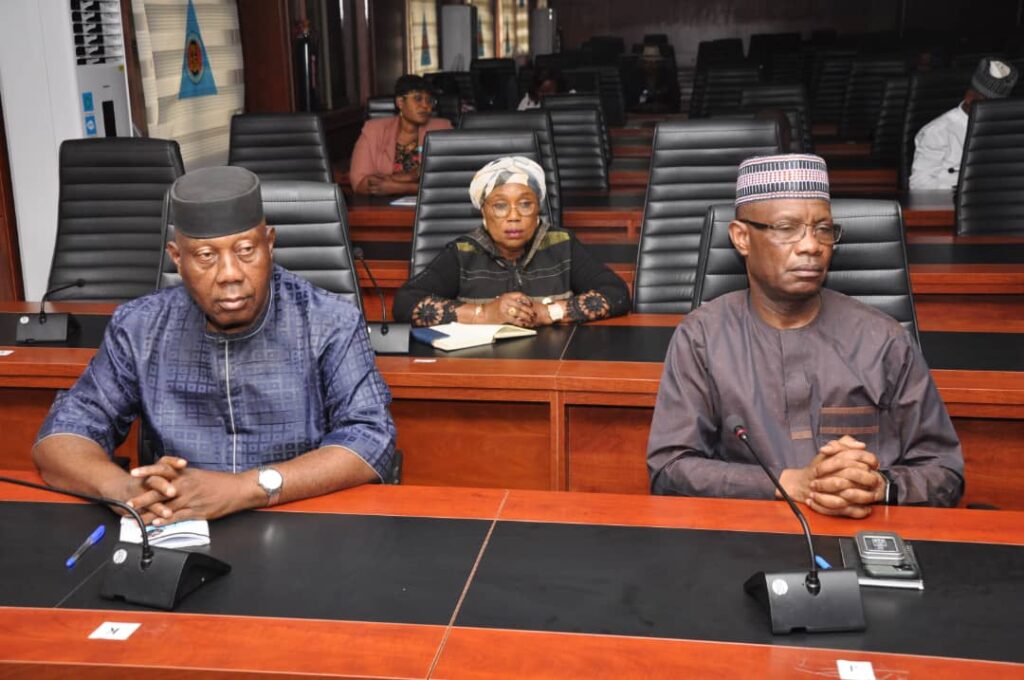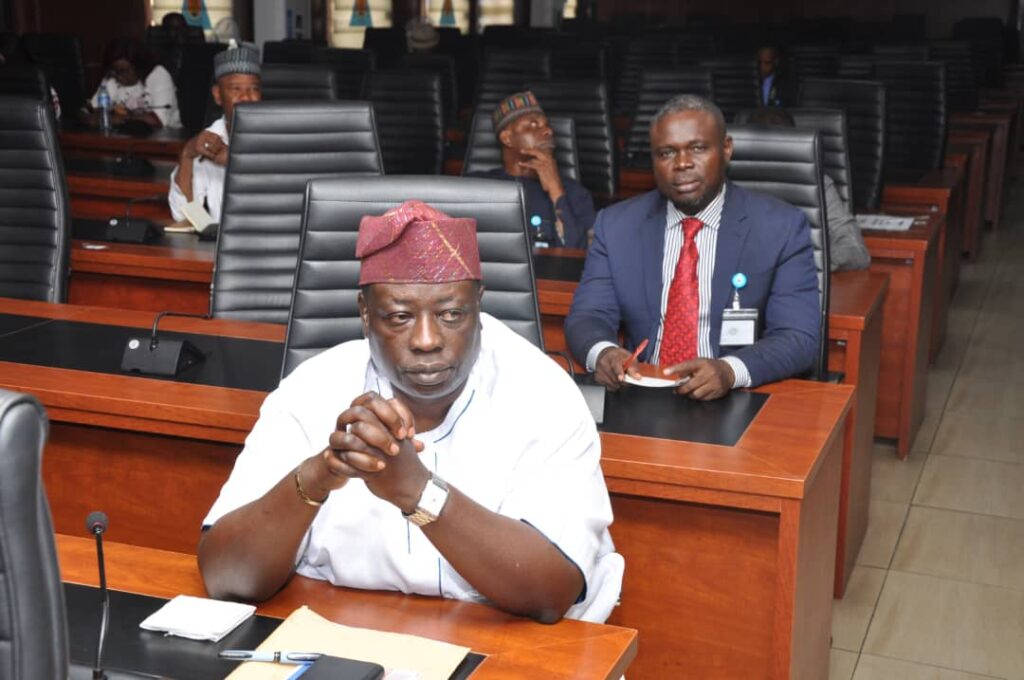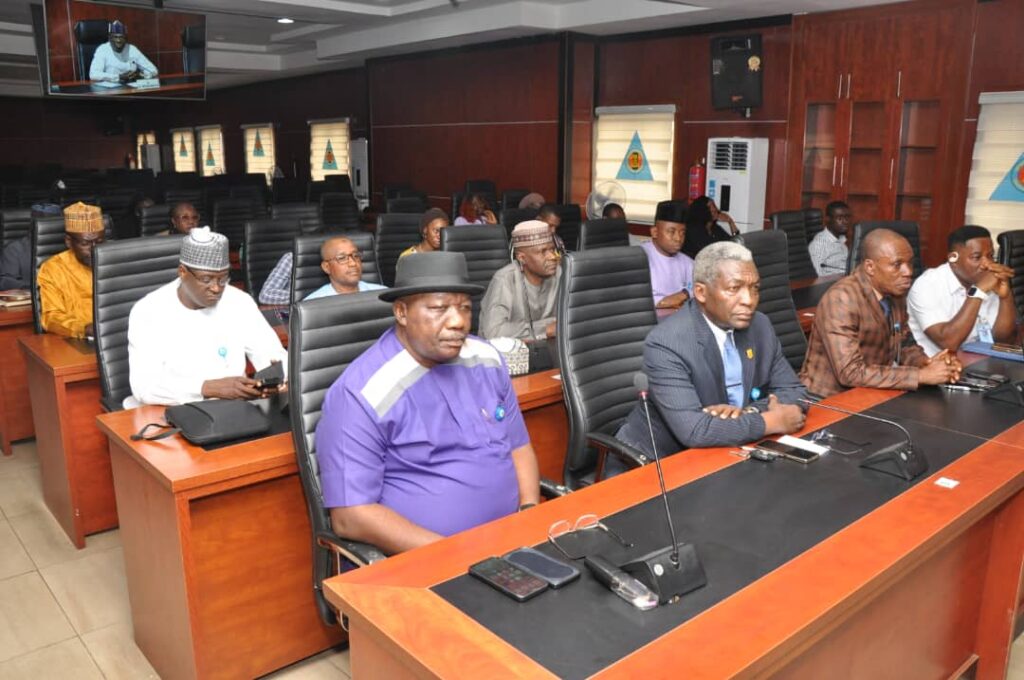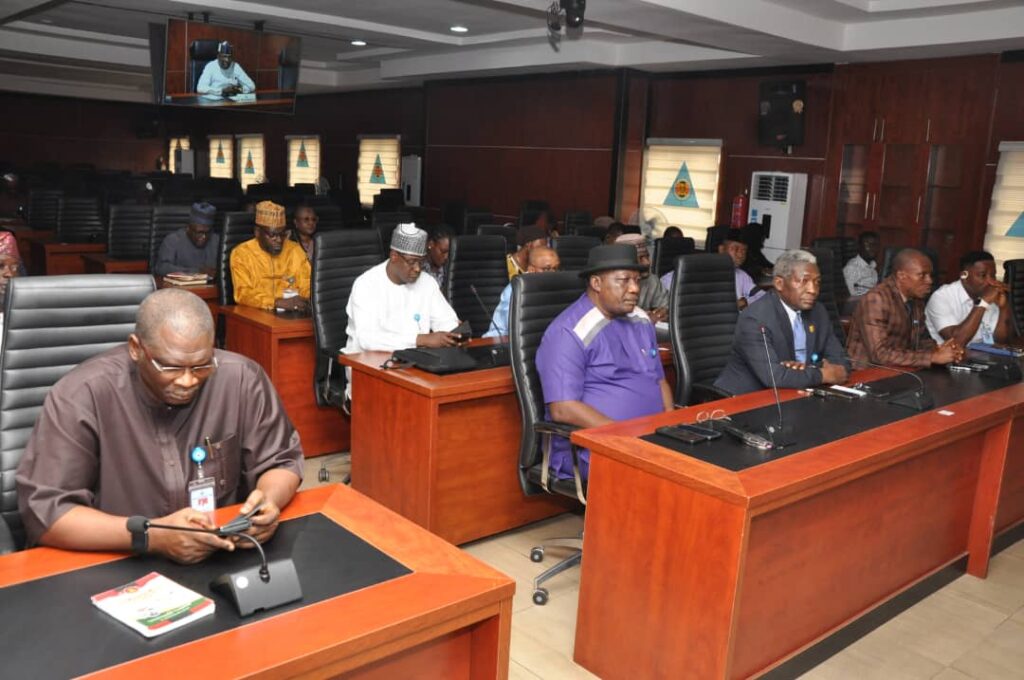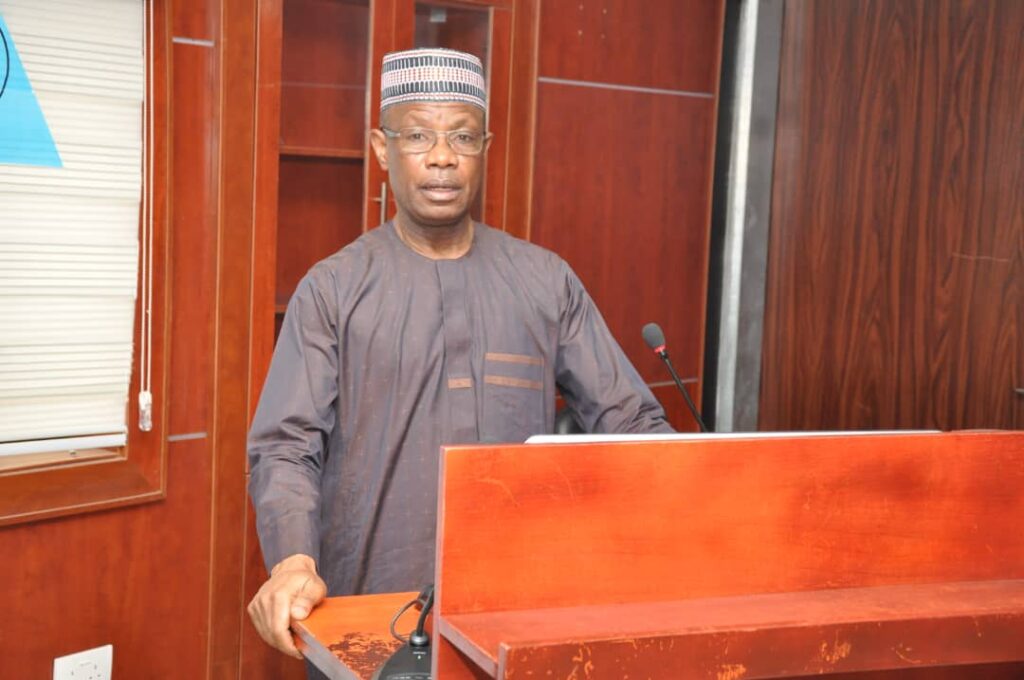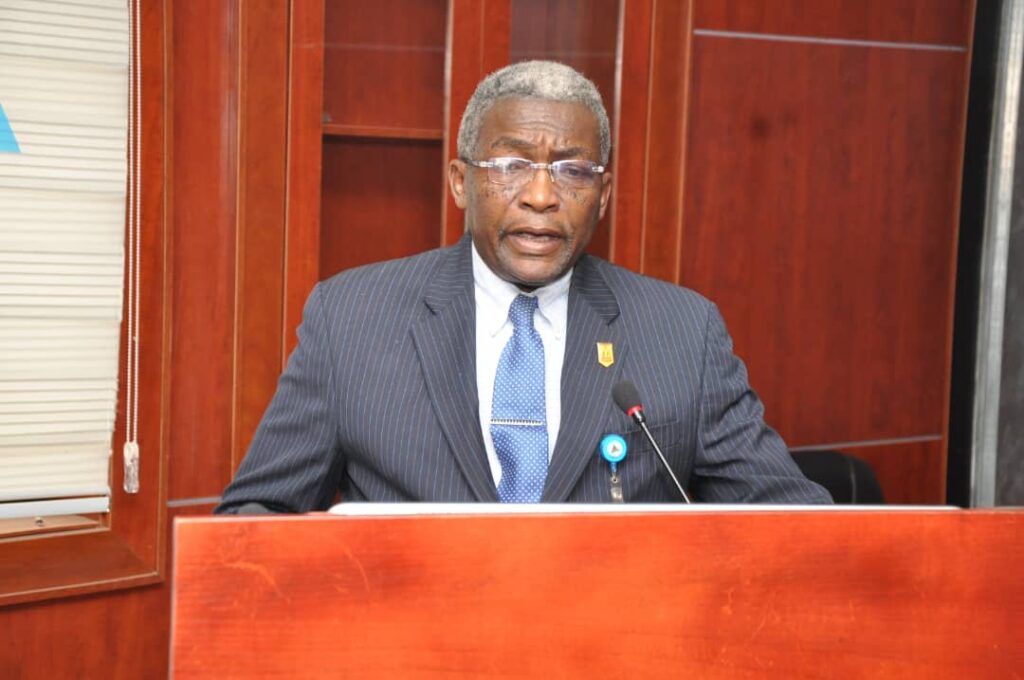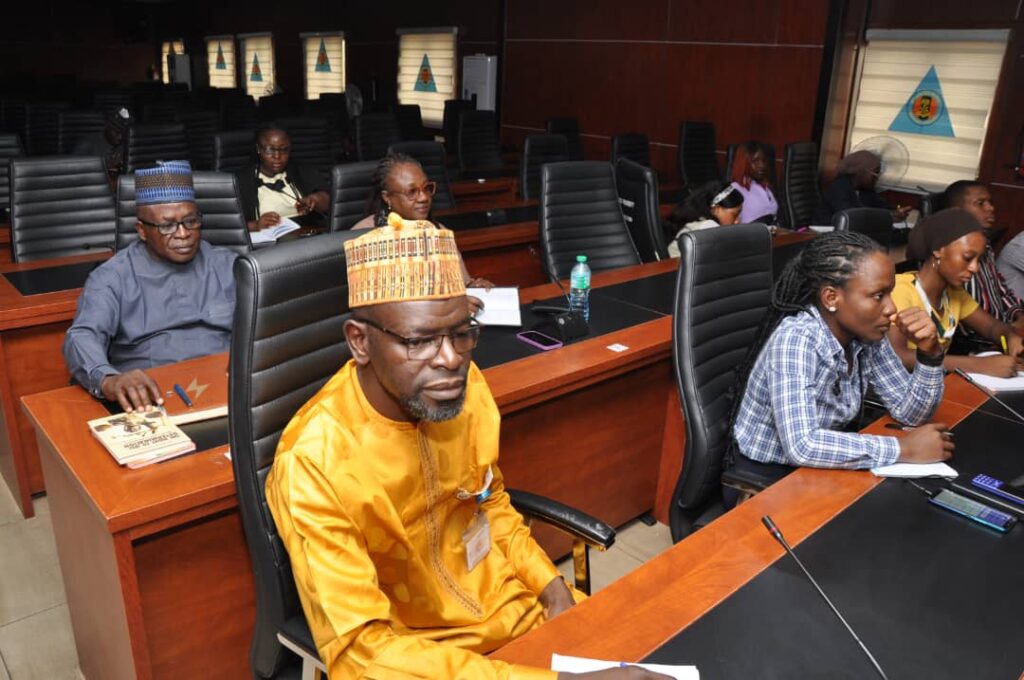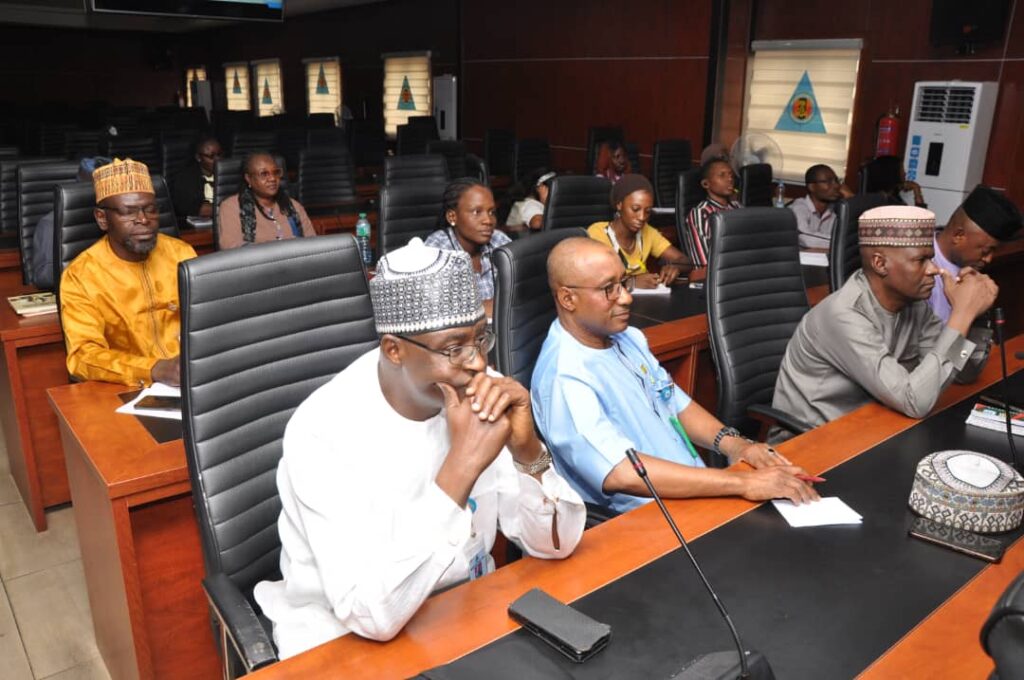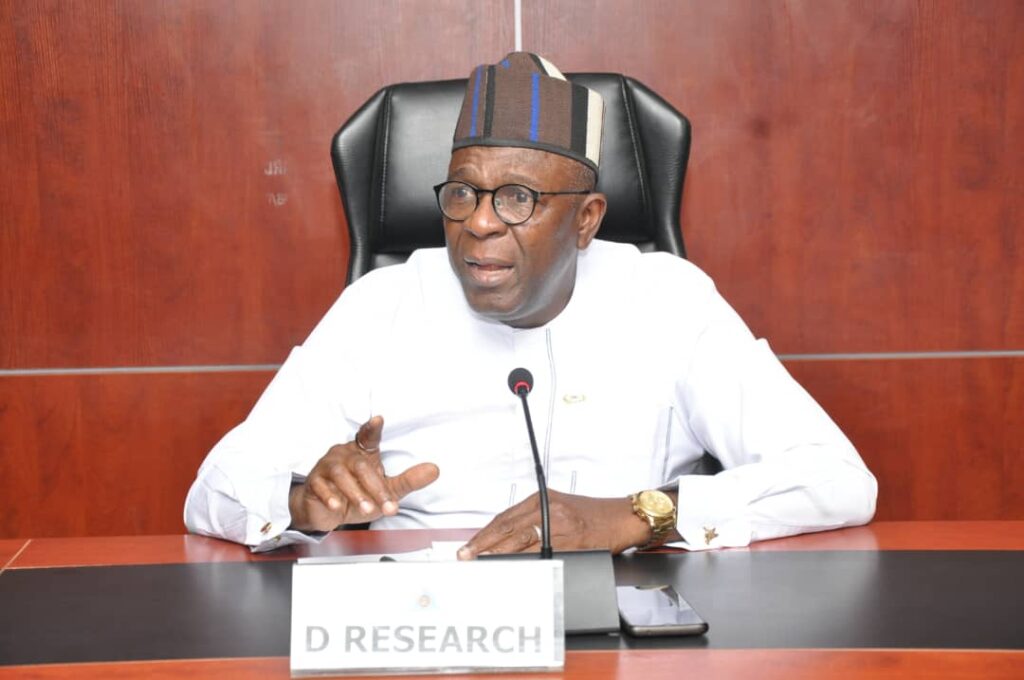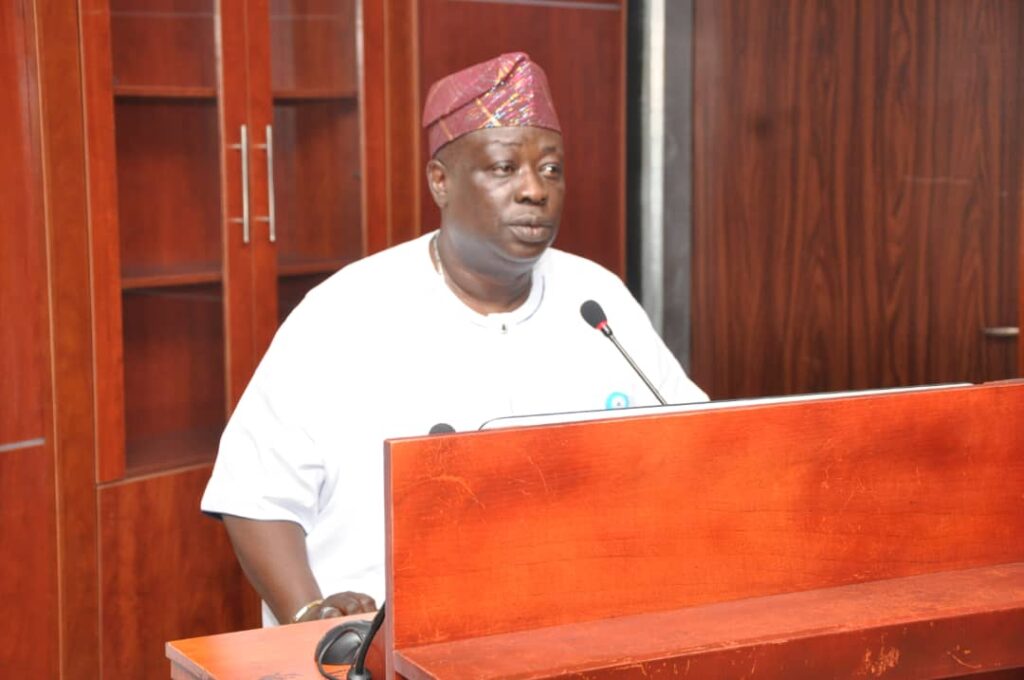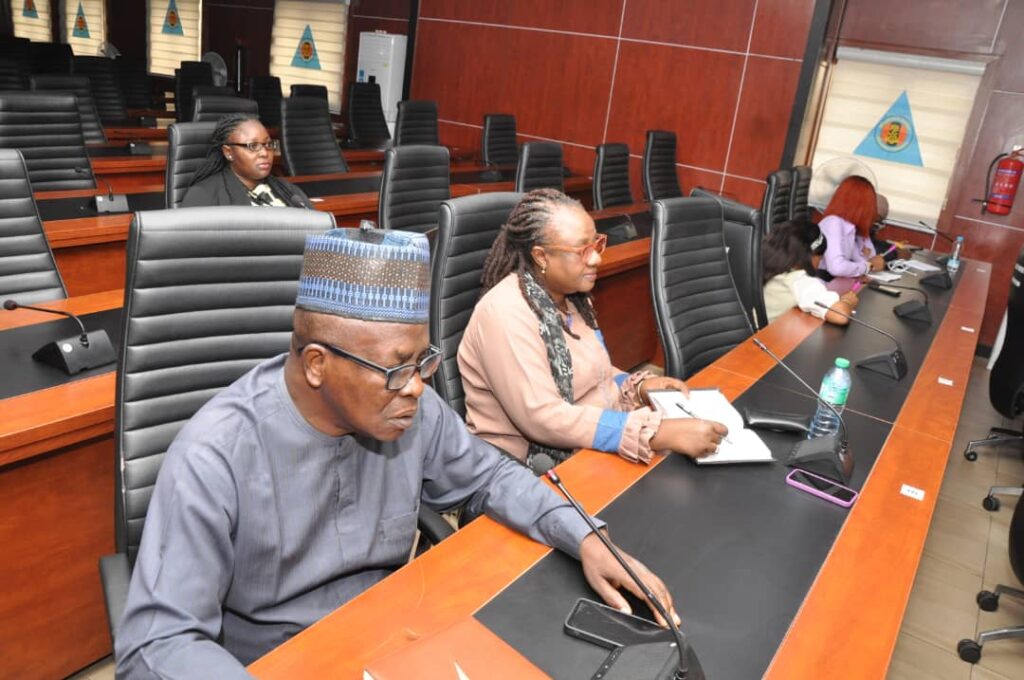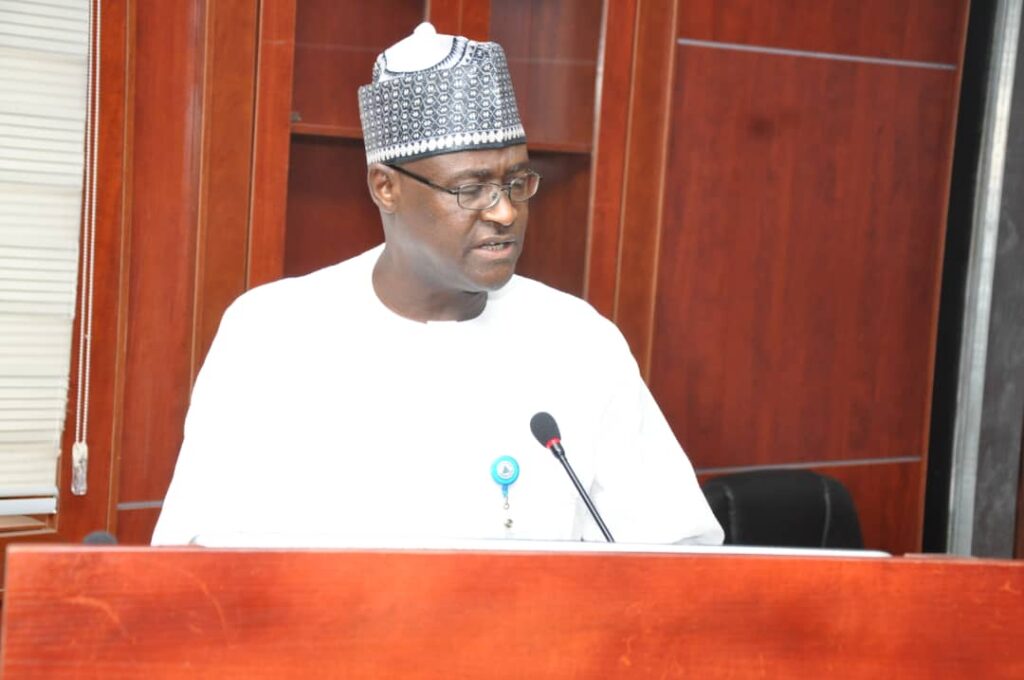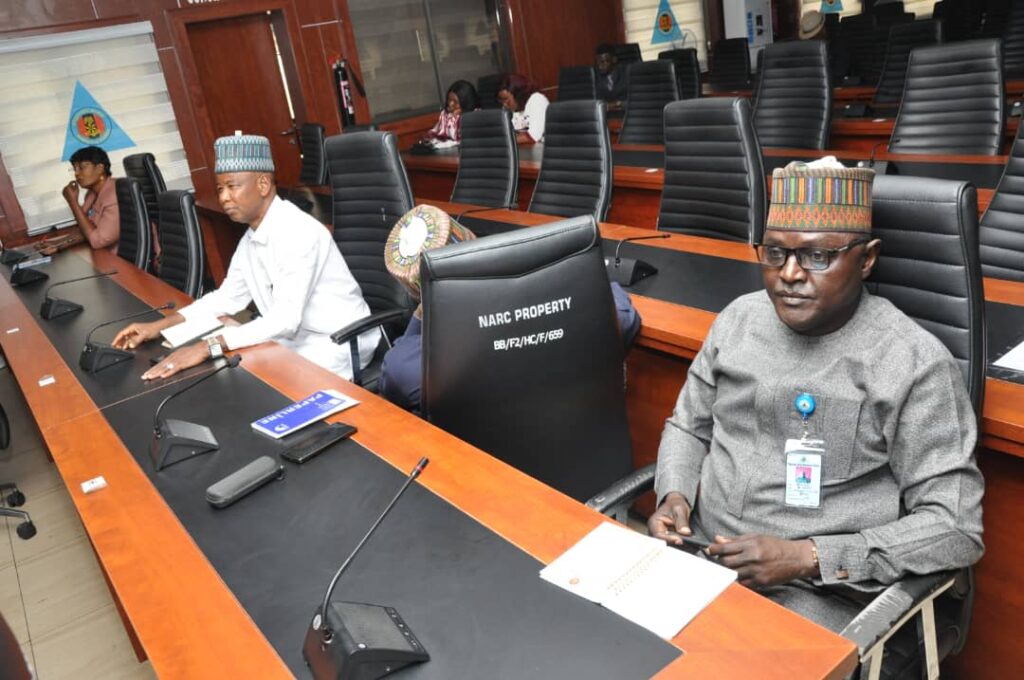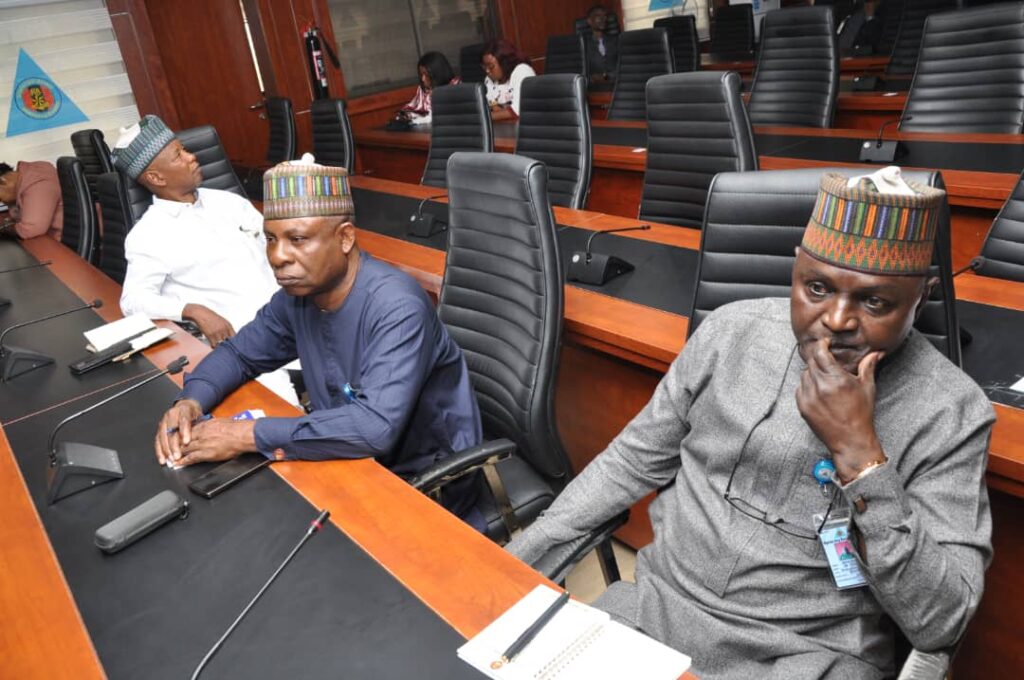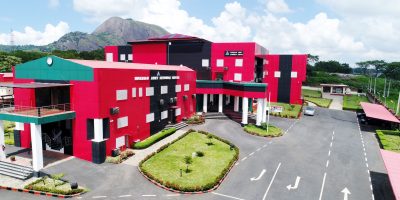Nigerian Army Resource Centre (NARC) Weekly Subject Experts’ Presentation was held at Hall C, TY Buratai Block, Abuja. There were four presentations made by the Subject Experts on Republic of China, Southern Africa, South America and the Caribbean and North Africa, Middle East and Turkey.
The first presentation by Maj Gen JA Orokpo (Rtd) subject experts on China, focused on the report from the South China Morning Post (SCMP) reported on 11 Mar 24 that China nearly halved its arms imports over the past 5 years as it replaced foreign weapons with its own technology, but Russia still accounted for the bulk of Beijing’s overseas purchases. He stated that the SCMP cited a report released on 4 Mar 24 by the Stockholm International Peace Research Institute (SIPRI) that said China’s arms import in 2019 – 23 fell by 44% from the previous 5 years, putting it 10th on the list of the world’s biggest buyers of foreign weapons. The report said the rapid drop in Chinese imports overall was because of Beijing’s ‘’ growing ability to design and produce its own major arms’’ and would probably ‘’ decrease further as it researcher with SIPRI Arms Transfer program said ‘’
China had localized several systems in the past few years, such as engines for combat and transport air craft that if imported from Russia and Marine engines from Ukraine, France and Germany’’ Additionally, the SIPRI report stated that China had a 19% share of arms import in the Sub-Saharan Africa, narrowly overtaking Russia with 17% to become the largest arms supplier to the region in 2019-23. Based on the report, China has transitioned from being a major arms importer to becoming a significant arms exporter, particularly in African region.
In his analysis and lessons for Nigeria, Maj Gen JA Orokpo (Rtd) noted that, the 3 largest arms importers in the sub region in 2019-23 were Nigeria (with 16% of sub-Saharan imports), Angola (9.2%) and Senegal (9.2%). Like Nigeria in sub-Saharan Africa, Brazil is the largest importer of arms in the South-American region. Her arms imports were 26% higher than in 2014-19, and accounted for 44% of sub regional total in 2019-23. The SIPRI Fact Sheet of March 2024 stated that States in Sub-Saharan Africa accounted for 2.2% of all imports of major arms in 2019-23. Their combined arms imports were 9.0% lower than in 2014-18. DICON’s major products are small arms and ammunitions which are barely sufficient to meet local demands. In addition, Nigeria should consider the potential risks associated with relying too heavily on foreign suppliers. The dependency can limit Nigeria’s access to vital military equipment at critical periods.
He recommended that Federal Government of Nigeria should invest more in domestic arms production. FGN should invest more in Research and Development in the defence sector and also Develop specific areas of military technology (the drones technology).
Relatedly the second presentation by Col OR Akerele (Rtd) Subject experts on Southern Africa, centered his presentation on the Botswana Minister of Agriculture, Fidelis Molao on 18 Mar 24 p-ress conference on the country Selebi Phikwe Citrus Project in Gaborole that Botswana is preparing for its first citrus harvest from the special project. Citrus is a genus of flowering trees and scrubs in the rue family producing crops such as oranges, lemons, grapefruits, lime and pomelos etc. He stated that Botswana is to export 70 percent of produce. The produce is to be exported to China, USA, Canada, Britain, Japan and the Middle East. And the 30 percent to the domestic market. He equally stated that there are over 24 Global market permit for the produce; he also emphasized the importance of adhering to regulation and technology treatment to identify, prevent and eradicate plant pests and diseases before that product can enter the markets starting with China at the end of March 24.
In his analysis and lessons for Nigeria, Col OR Akerele (Rtd) pointed that, just as Botswana established the Phikwe Citrus Project Farm to boost production, local consumption and agricultural exports starting with citrus, Nigeria could also establish special project farms in identified locations of high citrus growth. This is expected to boost growth, export and local consumption with added value to earn revenue for the country higher local sales for producers and employment for workers in the value chain. Botswana adhered to established rules and regulations for production and export of citrus which earned her entry into the global market. Additionally, technology on preservation and freshness were also observed; therefore eradicating the possibility of rejection at export destinations. Nigeria could ensure that all rules, regulations and technology for production, packaging and export of citrus are strictly adhered to in order to minimise or eradicate rejection at export destinations due to poor quality, preservation and packaging. Botswana in 2020, decided to diversify her economy form flower exports and initiated plans to commence the export of fruits in 2025.
However the first batch of her citrus fruits from Selebi Phikwe farm project are to be exported to China by March 24 ending. Nigeria could therefore replicate this initiative and diversity from oil exports to agricultural produce starting with a farm produce project such as the Selebi Phikwe Citrus Project that will export fruits to other countries and earn revenue for Nigeria.
He recommended that Federal Government of Nigeria through the Federal Ministry of Agricultural should establish at least four Crop Projects Farms in different parts of the country where they most be productive with strict adherence to technology and preservation. And also Nigeria Exports Promotion Council should initiate a Crops Export facilitation Policy to ease export processing. The FGN should review duties on Exports and bureaucracy of shipping.
Similarly the third presentation by Brig Gen SA Gumel Subject experts on South America and the Carribean, who focused on Chile’s unexpected inflation surges in February 2024. He stated that the development disrupts the nation’s deflationary path with significant likes in transportation, housing and utilities; as a result, the consumer price index (CPI) climbed to a 4.5 percent annual rate accumulating a 1.3 percent rise in 2024. Bring Gen Gumel Quoted a report from Scotiabank that suggests that February’s inflation reflects a bigger than expected currency exchange effect, Surprising the market. The CPL’S composition showed 8 out of 13 divisions contributing positively to the monthly index change; notably, transportation housing and utilities led the increases. In contrast, tourism, sport and culture sectors recorded the most notable monthly decrease while Energy and food Prices experienced rises of 11 percent and 0.2 percent respectively’’.
In his analysis and lessons for Nigeria, Brig Gen SA Gumel noted that the global economy is generally in a stated of serious difficulty, with some key economies at high risk of recession and inflation likely within the year 2024. Galloping inflation has caused acute cost of living crisis in most countries of the world, including developed nations, pushing up recession risks. There is high chances of recession happening in the world’s largest economy during the year 2024 and those chances have risen for the euro zone and Britain too. Inflation, simply put as persistent rise in the general price level of goods and services, is a global economic phenomenon that affects countries differently based on their unique circumstances. Drawing lessons from other parts of the globe can provide insights into effective strategies and the way forward for addressing inflation in Nigeria. Nigeria’s economy is heavily dependent on crude oil, as its largest foreign exchange earner.The 2024 inflation average reflects that petrol price increases in June 2023 will drop out of the year-on-year calculation from mid-2024, preventing the rate from being even higher. Nigeria, with an estimated population over 210m people, remains the largest economy in Africa. Its current GDP is largely from services such as ICT and banking followed by manufacturing & processing businesses and agriculture.
He recommended that Federal Government of Nigeria should prioritize critical infrastructure projects to enhance productivity and reduce production costs and also accelerate efforts to diversify the economy by investing in agriculture, manufacturing, and technology and implement responsible fiscal policies to reduce budget deficits and control government spending and to use external borrowing to rebuild FX reserves so as to stabilize naira.
Furthermore the fourth presenter Brig Gen SO Oloyede Subject experts on North Africa, Middle East and Turkey. His presentation covered Isreal Reports on Arab initative for Gaza Security 2024 (Dahlan’s plan’’, the arrest of Dozens during Egyptains protest against falling living conditions and the detention of seven people by the Turkey government suspected to be spying for Israel. Brig Gen SO Oloyede quoted a reported from the voice of America 9VOA, 2024) that ‘’ Mali, Burkina Faso and Niger have under coups since 2020 against a back drop of a bloody Jihadist insurgency.’’ He equally quoted a report from Morocco world News 2024 that ‘’ the three countries pulled out from ECOWAS since 28 January 2024 and created a joint Defence pact to fight the Jihadists, they grieved that the leadership of ECOWAS was beginning to derail from the founding father’s Vision, consequently, the need for them to look for support outside ECOWAS and beyond became imperative’’
In his analysis and lessons for Nigeria, Brig Gen SO Oloyede stressed that Poor exploration of diplomatic channels could have far-reaching implications on international relations. There are no permanent friends in international relations, but permanent interests. The exit of the three Sahel States from ECOWAS could jeopardise both the economy and security of Nigeria as well as the West African sub-region.Non-guaranty for Nigeria and other member states’ interests by ECOWAS leadership, could lead to new alliances by aggrieved member states.
He recommended that leadership of ECOWAS should always explore all diplomatic channels, including persuasion, before making any strategic decision or policy in future endeavours. Ffederal Ggovernment of Nigeria should influence ECOWAS to always consider far-reaching implications of ECOWAS’ strategic decisions and policies on both the economy and security of the Sahel region. FGN led ECOWAS should always guarantee Nigeria’s and other ECOWAS members’ interests in accordance with ECOWAS’ establishment. FGN led ECOWAS should lure the exited Sahel members back to ECOWAS as a matter of urgency through diplomacy.
